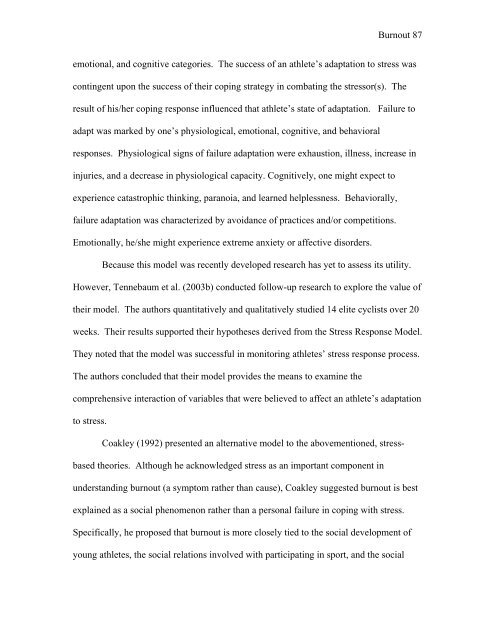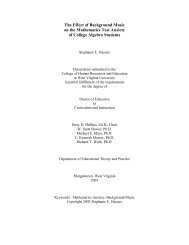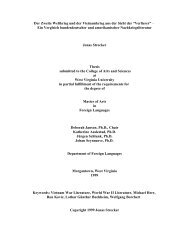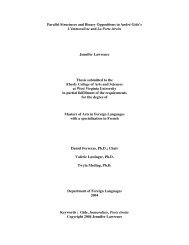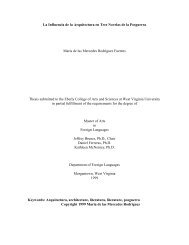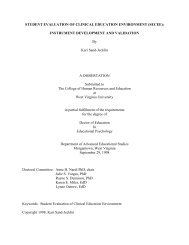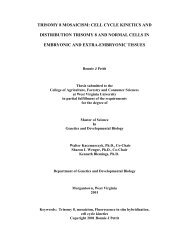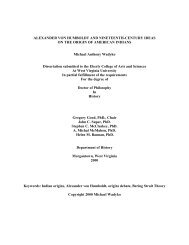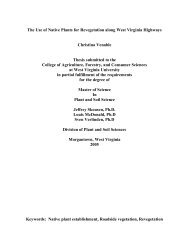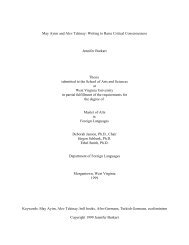Coach and Athlete Burnout - West Virginia University
Coach and Athlete Burnout - West Virginia University
Coach and Athlete Burnout - West Virginia University
You also want an ePaper? Increase the reach of your titles
YUMPU automatically turns print PDFs into web optimized ePapers that Google loves.
<strong>Burnout</strong> 87<br />
emotional, <strong>and</strong> cognitive categories. The success of an athlete’s adaptation to stress was<br />
contingent upon the success of their coping strategy in combating the stressor(s). The<br />
result of his/her coping response influenced that athlete’s state of adaptation. Failure to<br />
adapt was marked by one’s physiological, emotional, cognitive, <strong>and</strong> behavioral<br />
responses. Physiological signs of failure adaptation were exhaustion, illness, increase in<br />
injuries, <strong>and</strong> a decrease in physiological capacity. Cognitively, one might expect to<br />
experience catastrophic thinking, paranoia, <strong>and</strong> learned helplessness. Behaviorally,<br />
failure adaptation was characterized by avoidance of practices <strong>and</strong>/or competitions.<br />
Emotionally, he/she might experience extreme anxiety or affective disorders.<br />
Because this model was recently developed research has yet to assess its utility.<br />
However, Tennebaum et al. (2003b) conducted follow-up research to explore the value of<br />
their model. The authors quantitatively <strong>and</strong> qualitatively studied 14 elite cyclists over 20<br />
weeks. Their results supported their hypotheses derived from the Stress Response Model.<br />
They noted that the model was successful in monitoring athletes’ stress response process.<br />
The authors concluded that their model provides the means to examine the<br />
comprehensive interaction of variables that were believed to affect an athlete’s adaptation<br />
to stress.<br />
Coakley (1992) presented an alternative model to the abovementioned, stress-<br />
based theories. Although he acknowledged stress as an important component in<br />
underst<strong>and</strong>ing burnout (a symptom rather than cause), Coakley suggested burnout is best<br />
explained as a social phenomenon rather than a personal failure in coping with stress.<br />
Specifically, he proposed that burnout is more closely tied to the social development of<br />
young athletes, the social relations involved with participating in sport, <strong>and</strong> the social


